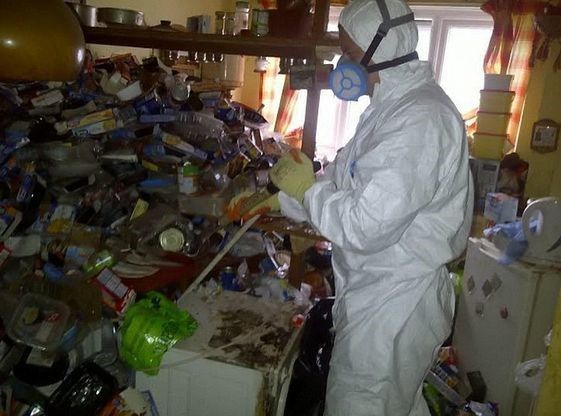Hoarding and Older Adults
Hoarding and Older Adults
Imagine you were told to put your favorite item – a watch inherited from a relative, a shirt, or even a family picture - into trash, wouldn’t you feel upset or heartbroken? “That’s how hoarders feel when cleaning their home,” explained Jack Sherratt, Program Director of Geriatric Mental Health and Hoarding Initiative.
People with hoarding disorder have difficulty discarding or parting with possessions. They feel a strong attachment to items and often attach meanings to their belongings. They believe in saving all items for possible future use, yet are not aware of the health and safety consequences of hoarding.
Right at Home of Lower Manhattan sponsored a CEU program on “Hoarding and Older Adults” for social workers, registered nurses and staff members at the Residence at Gouverneur Court on December 6, 2016, providing ideas and insights on how to help patients with hoarding issues.
Researchers at John Hopkins found that about 4% of the population shows hoarding behavior. The percentage goes up to 6.2% in people over 55. Hoarding is exacerbated in seniors due to social isolation, grief and loss, limited mobility and income, as well as a lack of mental health care help.
Hoarding in older adults also comes with a unique set of potential perils – they may face an increased risk of falls in a crammed home, or live in a hazardous or unsanitary environment. Alternatively, hoarding issues may also indicate the presence of Alzheimer’s, dementia, or other mental illnesses.
Sherratt introduced the nine-point clutter image rating scales to help attendants understand the scope of the hoarding problem. He also suggested asking simple questions to detect if someone has issues with hoarding:
- Do you buy items or acquire things that you do not need or have enough space for?
- Do you have a hard time discarding, recycling, selling or giving away things that other people would consider junk?
- Does clutter or too many possessions make it difficult to use some areas or rooms in your home?
- Does saving items, acquiring new items or clutter affect you daily activities?
- Do you feel stress in your home?
Sherratt says landlords in New York City may use hoarding as an excuse to evict elderly who live in rent control apartments. He helps many of them getting to the roots of their behavior so they can take control and declutter. All program participants managed to evade evictions so far, while they continue to build new mental health skills.

[In the picture] Jack Sherratt, Program Director of Geriatric Mental Health and Hoarding Initiative in hazmat suit, cleaning an apartment.



